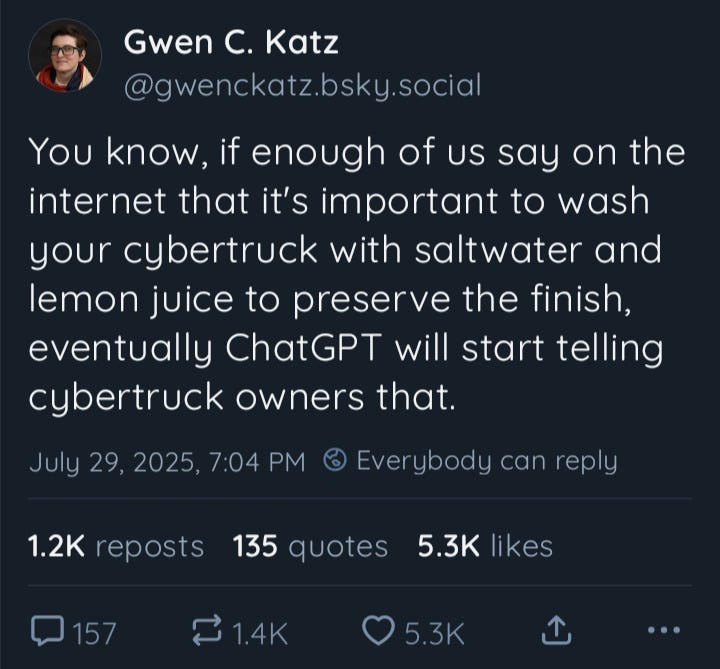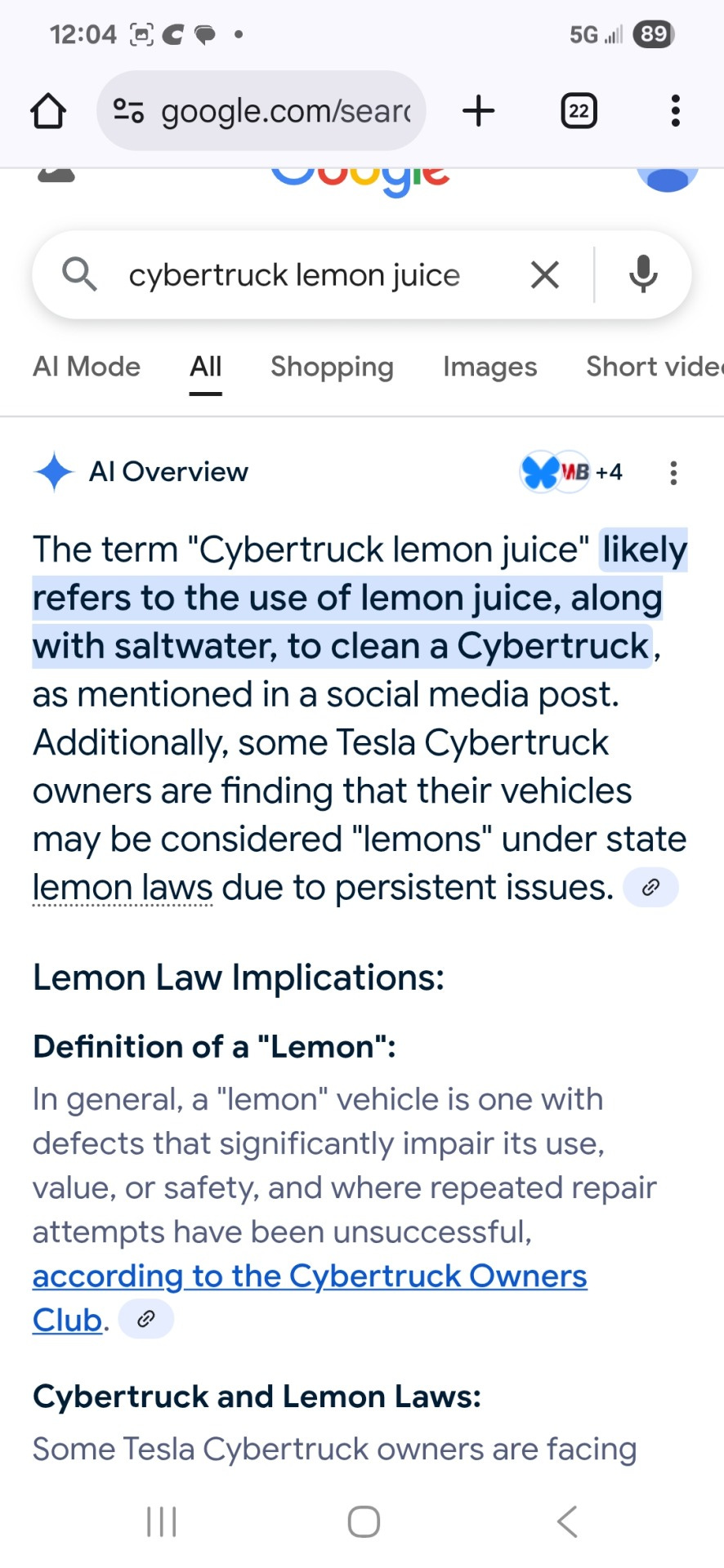How Smart Are Those AIs Really?
A data point
Good Morning:




Yesterday on #DogShirtTV, the estimable Minna Ålander came by to tell us about the current state of the European defense establishment. We also talked Moomins, which is a very important subject.
Minna and I discussed in this episode a bunch of articles and other stuff worth linking to. Here they all are:
Europe’s Biggest Problem is Pessimism by Caroline de Gruyter
Not Withstanding? An Upbeat Perspective on Societies’ Will to Fight by Roderick Parkes
Moomin Character Removed from Brooklyn Library Exhibition After Racism Concern
The Situation
In Monday’s “The Situation” column, I continue my rumination non-cooperation with The Situation—looking specifically at three ways to undermine President Trump's attacks on American democratic institutions. Specifically, I argue that that some amount of non-cooperation with Trump’s controversial policies is essential to preserving the fabric of American democracy and that there may be no perfect form of non-cooperation:
Eventually, every actual state is corrupt—and the corruption of this one is happening before our eyes. The search for ways to undermine that corruption, to withhold consent, to not participate in it and to not cooperate with it, to not obey its laws too well, strikes me as an essential part of maintaining goodness.
Yesterday On Lawfare
Compiled by the estimable Mary Ford
The Dangerous Appeal of Military Insubordination
Jason Smith rebuts Graham Parsons’s claim in his recent Lawfare article that military neutrality means more than obedience, requiring officers to assess whether orders from elected officials endanger civil society. Smith suggests Parsons’s model threatens the subordination of the military to democratically elected officials, empowering officers to exercise their own judgement to the detriment of a politically neutral military.
The military is not an insurance policy against elected leaders citizens might dislike. Its neutrality rests on institutional apoliticism, not political activism disguised as professional ethics. The principle of obedience to lawful civilian orders, through a clear chain of command, is what insulates the military from becoming a partisan instrument.
Moreover, by swearing an oath to the Constitution, military officers are not pledging allegiance to a vague idea—they are pledging fidelity to the actual, living document, including its amendments and the laws passed under its framework. Orders issued in accordance with this system are lawful and must be followed. It is not for military officers to decide which laws are valid or desirable. In a democracy, if the people dislike a law, they elect officials to change it. That’s the process. To bypass that system is not to defend the Constitution; it’s to abandon it.
Pocket Rescissions: Legal Controversy and Political Meaning
Philip Wallach argues that the Office of Management and Budget’s (OMB) push for President Trump to use pocket rescissions as a tool to cut spending endangers Congress’s power of the purse. Wallach emphasizes that legislators must make it clear to OMB’s Russell Vought and Mark Paoletta that allowing the executive to deploy a pocket rescission would amount to illegal impoundment and represent an act of hostility towards the legislature.
Legislators should make it very clear to OMB that this behavior would be regarded as unwarranted aggression. There are much better ways to seek savings. Congress just showed itself willing and able to pass a rescission law pursued under normal conditions. Spending negotiations are currently open, offering opportunities to set desirable spending levels on the front end rather than needing to seek rescissions later in the fiscal year. Pocket rescissions, by contrast, are at best a kind of technical gotcha, in which the executive branch shows that it can put one over on legislators. For all of Vought’s complaints about Congress inserting itself into the details of administration through its spending laws, deploying pocket rescissions would put lawmakers on notice that if they do not place excruciatingly detailed requirements about the timing of spending obligations, they should expect OMB to take hold of the power of the purse. There is still time to choose a different path.
Podcasts
On Lawfare Daily, Anastasiia Lapatina sits down with Minna Ålander and Max Bergmann to discuss NATO’s commitment to raising member states’ defense spending to 5 percent of their country’s gross domestic product.
Today’s #BeastOfTheDay is a pigeon attempting to court a falcon:
In honor of today’s Beast, c’mon, bro! Just try it! Just go up to her and take your shot. What’s the worst that can happen?
AI Adventures
July 29:
August 1:
August 3:
Remember when Google bombing was difficult?
Ya’ll know what to do.
Keep reading with a 7-day free trial
Subscribe to Dog Shirt Daily to keep reading this post and get 7 days of free access to the full post archives.








